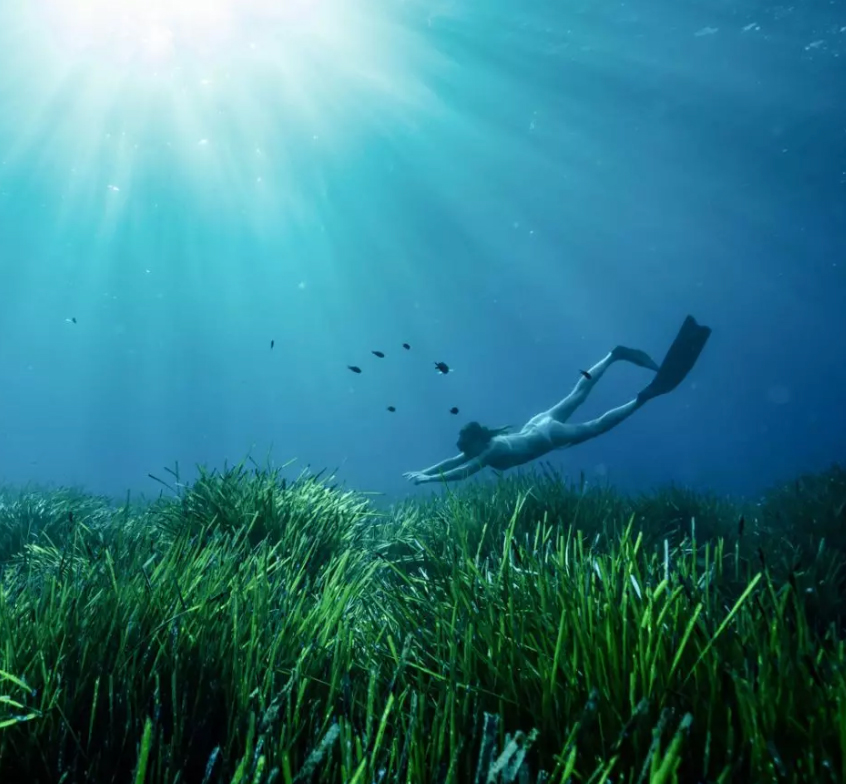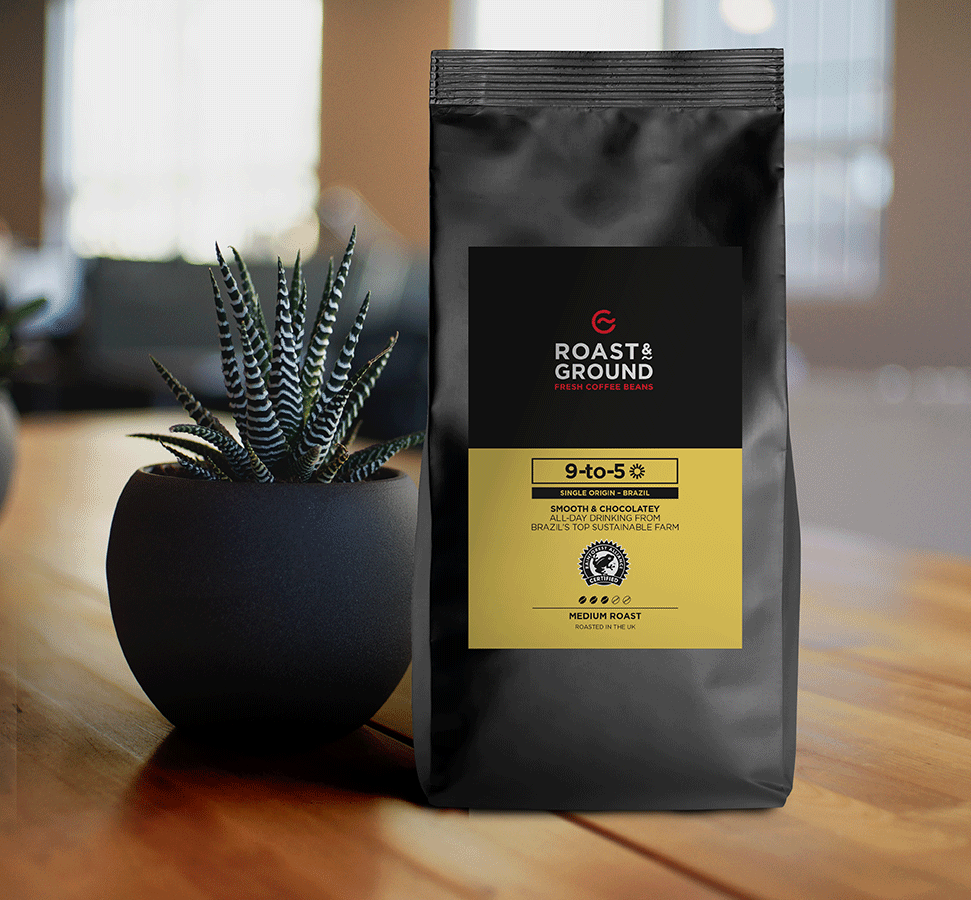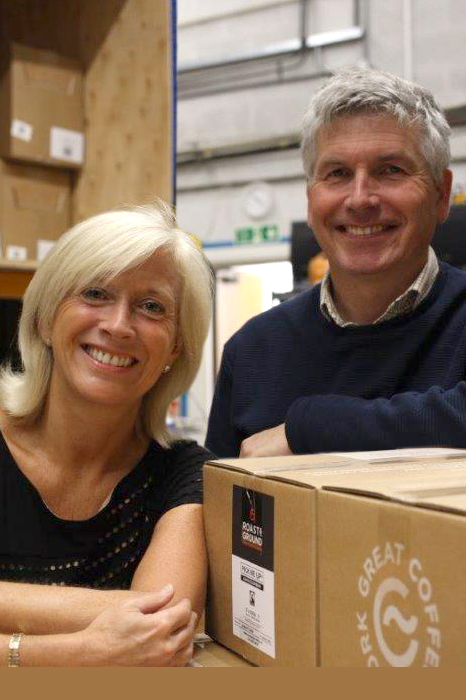How Roast & Ground is helping to restore marine ecosystems
Help4Kelp Brewback Project: Latest News from Our South Coast Recovery Sites
Last year, Roast & Ground committed to sponsoring survey work at four kelp recovery sites off the Sussex Coast. We’re now pleased to report that Brittlestars, Cuttlefish, Small Spotted Catshark and Bib are amongst the species that have recently been identified by special underwater survey cameras used to study the area.
There’s a long way to go before the kelp along the South Coast is as prolific as it was in the 1980s, however every plant counts.
“It can take at least five years for the data to show significant recovery, but the early signs are good.”
Emily Bulled, Blue Marine Foundation
The Critical Role of Kelp Ecosystems
“Kelp forests are some of the most productive environments on the planet,” says Emily Bulled of Blue Marine Foundation, which undertakes this important research in conjunction with the University of Sussex. “Just one kelp plant can support 80,000 individual animals.”
These plants – which include oarweed, tangle or cuvie, sugar kelp and furbelows – also have a key role to play in battling climate change, performing lots of different “services”. As Emily explains, these include:
- Providing a physical barrier to wave energy
- Reducing the impact of storm surges and flooding
- Oxygenating and purifying the water
- Potentially helping to reduce ocean acidification


Early Success: Signs of Marine Recovery
The kelp along the coast between Selsey Bill and Shoreham-by-Sea has been steadily regenerating since the Nearshore Trawling Byelaw exclusion zone was introduced in 2021, however as kelp favours cooler, more temperate waters, the comparatively warm water temperatures brought about by climate change might make complete recovery an uphill battle.
“Increased water temperatures impact kelp’s growth and tissue strength,” says Emily.
To help keep an eye on it, Roast & Ground sponsors four sites, which our team have named Middle Kelp, Bikini Bottom, Forest Kelp and Neptune’s Nook. Excitingly, at Neptune’s Nook, Dead Men’s Fingers, a type of soft coral, has also been spotted by the survey’s underwater cameras.
Coffee Sustainability Beyond Fairtrade: Our Environmental Commitment
As soon as we heard about the Sussex Kelp Recovery Project, a pioneering marine re-wilding project supported by Sir David Attenborough, we knew it was a good fit for Roast & Ground.
We had been looking for ways to extend our Corporate Social Responsibility efforts beyond sustainable and ethical coffee bean sourcing. While all Roast & Ground coffees are either Fairtrade or Rainforest Alliance Certified, we knew we could go further and set about looking for innovative and inspiring ways to offset our day-to-day operations in the UK.
Our approach? We measured our carbon footprint, allocated the necessary funds to offset our emissions, added an additional 25%, to allow for growth, and searched for high-impact local environmental projects.
Why We Chose The Sussex Kelp Recovery Project
We have enjoyed many company days out on the water. Roast & Ground founders Richard and Catherine Gray are keen sailors, conscious of the effects of climate change along the south coast in particular, and realised this was an opportunity to help protect marine biodiversity.
Rather than artificially introducing species, the Sussex Kelp Recovery Project allows nature to lead the restoration process. Marine life returning naturally is likely to be more resilient and better adapted to current environmental conditions.
The monitoring process also helps researchers identify additional factors affecting kelp regrowth, such as coastal sediment that blocks crucial sunlight.
The sedimentation off the Sussex coastline also presents a practical challenge: in making the water turbid or cloudy, it therefore can be difficult to see the various species captured by the survey cameras.
Watch the amazing sea creatures enjoying the cleaner, greener Sussex coast
Corporate Social Responsibility in Action
In working with GreenTheUK, who made the process of sponsoring the survey sites straightforward, we have joined a wide range of companies committed to supporting wildlife projects across the UK.
What’s next? It’s very exciting. A Kelp Summit was held in April, there are crab and lobster surveys scheduled for this summer, plus a Barriers and Optimum Conditions report forthcoming.
In 2026, the fifth anniversary of the introduction of the Nearshore Trawling Byelaw should provide a good opportunity to raise awareness of the importance of kelp, too. Blue Marine Foundation are keen to inspire young people to become ocean champions of the future. “Most people don’t realise kelp is important to society and the economy, too, so it’s important to engage them,” says Emily Bulled.
For an in-depth report on the results of the 2024 coastline survey and changes in species abundance since 2021, visit our GreentheUK Project Page.



